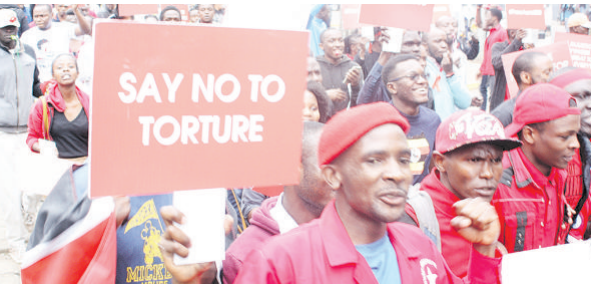
After days of uncertainty and anger that culminated in several deaths and dozens being injured during running battles in Uganda’s capital Kampala, the state finally gave an inch to protestors agitating for the release of popular opposition MP Robert Kyagulanyi, also known as Bobi Wine, and several other legislators.
On Thursday, the Ugandan military withdrew charges against the legislator after being detained in a military barracks in Gulu, a city in the country’s North, following a violent incident in the buildup to a municipality by-election that pitted opposition candidates against those of the ruling National Resistance Movement (NRM).